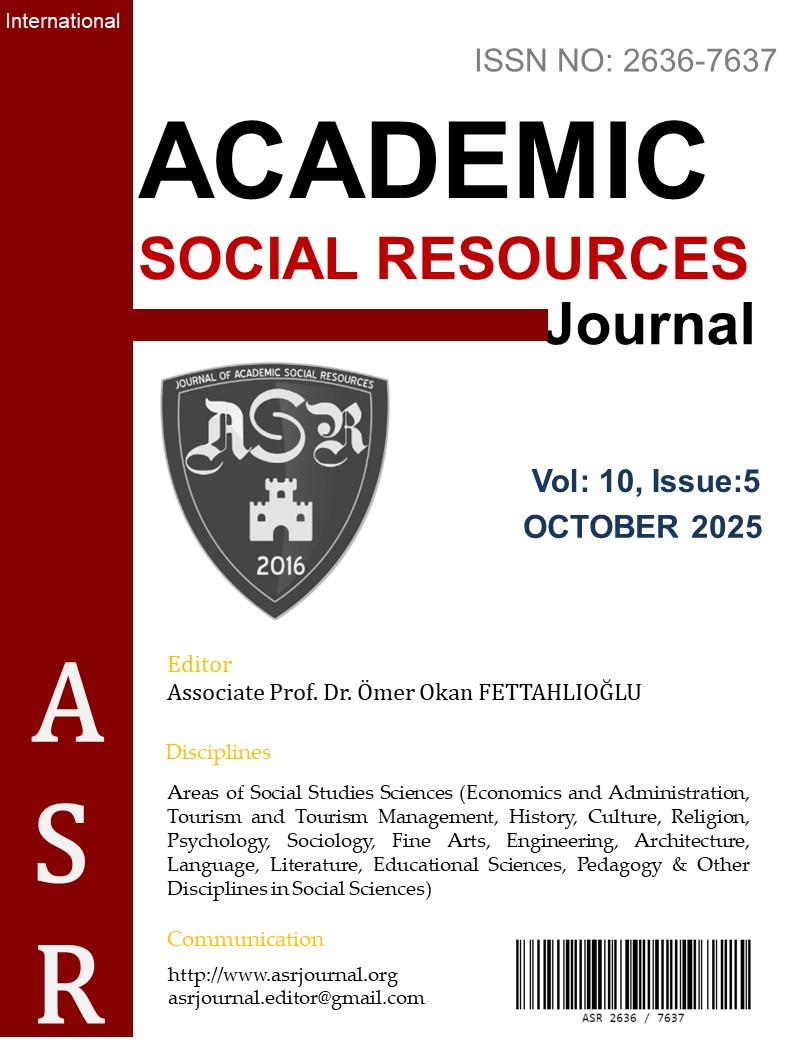Kırsal Girişimcilik ve Kırsal Turizm Aracılığıyla Yeşil Ekonomiye Geçiş: Kırsal Girişimcilerin Perspektifinden Nitel Bulgular
Author :
Abstract
Mounting environmental pressures, depletion of natural resources, and socio-economic vulnerabilities compel the tourism sector to adopt new approaches centered on resource efficiency. In this context, the green economy a holistic framework that seeks to minimize environmental impacts while safeguarding economic and social benefits-offers a critical reference point for realizing sustainability goals in tourism. Rural tourism and rural entrepreneurship, by preserving local natural and cultural assets, constitute a strategic intersection that provides an effective leverage for economic transformation. Building on the significance of this intersection, this study aims to elucidate the roles of rural entrepreneurship and rural tourism in the transition to a green economy from the perspective of rural entrepreneurs. To address this aim and gain in-depth insights, a qualitative research design was adopted. Face-to-face semi-structured interviews were conducted with 15 rural entrepreneurs, and the data were analyzed using MAXQDA. The analysis indicates that rural entrepreneurship plays a supportive and developmental role in advancing rural tourism and the green transition. Conversely, in the Marmaris destination, infrastructure deficits and quality deterioration coincide with a marked scarcity of sustainable practices. Findings show that rural entrepreneurs reduce operating costs and environmental footprints noticeably through small-scale yet effective micro-practices (e.g., LED/sensor-based lighting, rooftop PV, drip irrigation, rainwater harvesting, source separation and composting, licensed disposal of waste oil). Short value chains and local sourcing increase the retention of tourist expenditure in the locality, generating measurable multiplier effects in employment and related sectors. The ethical and locally grounded integration of cultural heritage strengthens destination appeal, while flexible employment models that support the participation of women and youth enhance social inclusion. By contrast, seasonality, infrastructure gaps (especially wastewater and energy), limited access to finance, and regulatory uncertainty constrain the scaling of green investments. Entrepreneurs underscore the need for performance-based incentives, clear place-based planning, and cooperative/cluster-based joint infrastructure and pooled-procurement mechanisms as critical levers for consolidating this transition.
Keywords
Abstract
Mounting environmental pressures, depletion of natural resources, and socio-economic vulnerabilities compel the tourism sector to adopt new approaches centered on resource efficiency. In this context, the green economy a holistic framework that seeks to minimize environmental impacts while safeguarding economic and social benefits-offers a critical reference point for realizing sustainability goals in tourism. Rural tourism and rural entrepreneurship, by preserving local natural and cultural assets, constitute a strategic intersection that provides an effective leverage for economic transformation. Building on the significance of this intersection, this study aims to elucidate the roles of rural entrepreneurship and rural tourism in the transition to a green economy from the perspective of rural entrepreneurs. To address this aim and gain in-depth insights, a qualitative research design was adopted. Face-to-face semi-structured interviews were conducted with 15 rural entrepreneurs, and the data were analyzed using MAXQDA. The analysis indicates that rural entrepreneurship plays a supportive and developmental role in advancing rural tourism and the green transition. Conversely, in the Marmaris destination, infrastructure deficits and quality deterioration coincide with a marked scarcity of sustainable practices. Findings show that rural entrepreneurs reduce operating costs and environmental footprints noticeably through small-scale yet effective micro-practices (e.g., LED/sensor-based lighting, rooftop PV, drip irrigation, rainwater harvesting, source separation and composting, licensed disposal of waste oil). Short value chains and local sourcing increase the retention of tourist expenditure in the locality, generating measurable multiplier effects in employment and related sectors. The ethical and locally grounded integration of cultural heritage strengthens destination appeal, while flexible employment models that support the participation of women and youth enhance social inclusion. By contrast, seasonality, infrastructure gaps (especially wastewater and energy), limited access to finance, and regulatory uncertainty constrain the scaling of green investments. Entrepreneurs underscore the need for performance-based incentives, clear place-based planning, and cooperative/cluster-based joint infrastructure and pooled-procurement mechanisms as critical levers for consolidating this transition.





